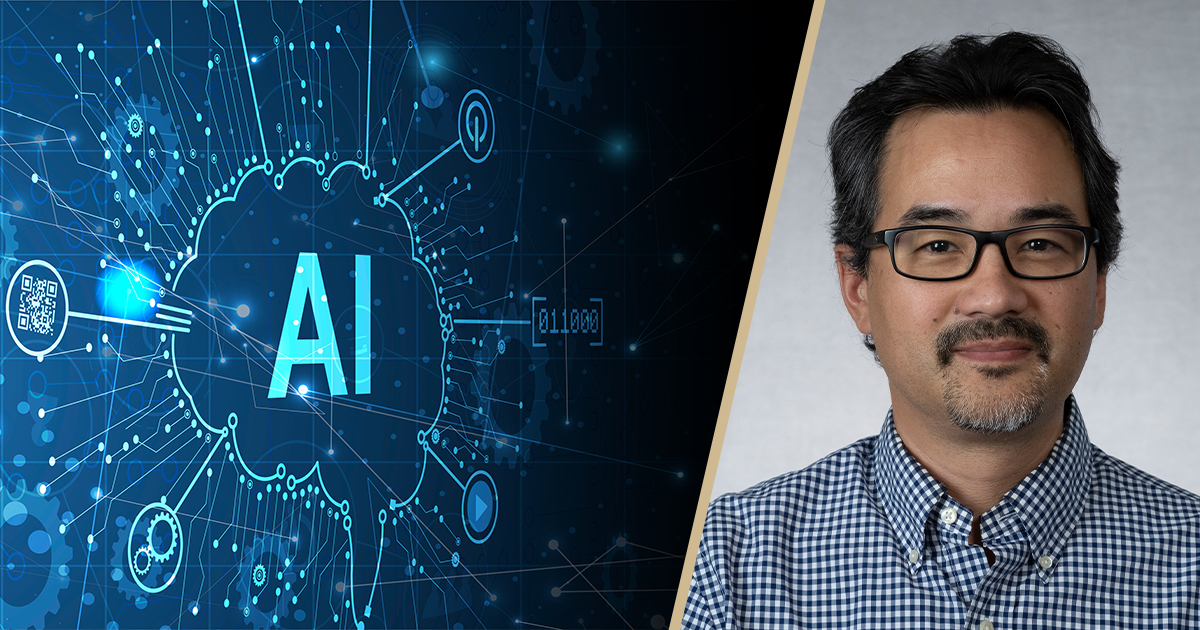Transforming Education: College leads Purdue’s 1st online course for new master’s in AI

Bill Watson
Purdue University has clearly defined artificial intelligence (AI) as a core area for the future of the university and its role in meeting global needs via the Purdue Computes initiative. The College of Education firmly aligns with Purdue’s initiative via its own Artificial Intelligence (AI) and Data Science efforts, including helping develop courses in Purdue’s new online master’s degree program (MSAI).
William R. Watson, professor of learning design and technology and director of the College’s Purdue Center for Serious Games and Learning in Virtual Environments, is the co-designer and lead instructor for the first year of a new AI course supporting this initiative. The course is titled Interdisciplinary AI Fundamentals: Bridging Knowledge (GRAD 50200) and is the introductory course for the MSAI.
For the introductory course, Watson collaborated with Xingyu Li, assistant professor of Engineering Technology; Cherie Maestas, professor and head of the Department of Political Science; and Ankita Raturi, assistant professor of Agricultural & Biological Engineering. Purdue Online instructional designers also collaborated with Watson and the team on developing the course.
“It’s exciting to be a part of offering a timely and relevant new program that is meeting the needs of so many learners from around the globe who each bring their own experiences, goals, and contexts,” said Watson, whose research interests include leveraging technology to design and realize personalized systems of learning.
“This is the first course Purdue is offering in the university’s online MSAI program and the College of Education is in the forefront,” said Wayne E. Wright, the College’s associate dean for Research, Graduate Programs, and Faculty Development.
Purdue’s MSAI program is one of the first transdisciplinary online graduate degree programs in existence and the inaugural Fall 2024 course has over 120 students enrolled.
But isn’t AI more for engineers and scientists?
“Artificial Intelligence has the potential to be a transformative technology in education,” Watson said. “By leveraging AI, we are able to create much more personalized educational experiences than ever before.”
With the advent and ubiquity of generative AI, Watson explained that curriculum at all levels must evolve to focus on critical thinking, creativity, problem solving, teamwork, and human-centric skills rather than the regurgitation of rote knowledge.
Purdue Online’s MSAI program has a track for “builders” – hardcore technologists who will be able to create their own AI applications, and another track for “translators” – the leaders who help their organizations understand how best to integrate AI. The new introductory course is a shared course which will be taken by students in both program tracks because both kinds of experts need to be able to communicate effectively with each other. Non-program students are also enrolled, including over 30 U.S. Naval Test Pilot School master’s students.
Faculty from every college on campus collaborated on the planning and design of the MSAI program curriculum. Courses from most Purdue colleges are available as elective courses, allowing students to specialize in their particular context.
“The College of Education offered the first entirely online graduate program at Purdue, is a leader in online learning, and continues to be play a core role as Purdue University expands and offers its most relevant program to date,” Watson said.
“Professor Watson’s central role in developing the first course in the MSAI highlights how the College collaborates across campus,” said Phillip J. VanFossen, interim dean of the College. “This also highlights how the College contributes to Purdue’s strategic vison by leveraging our comparative advantage in delivering online learning, and is but one example of how the College is a positive contributor to Purdue University.”
“AI has the most potential of any technology to truly transform our learning systems,” Watson said. “AI is the piece of the puzzle we’ve been waiting for to finally realize learning technology that truly supports the level of personalization we envision and that we think is necessary to meet modern societal needs.”
Source: William Watson, brwatson@purdue.edu